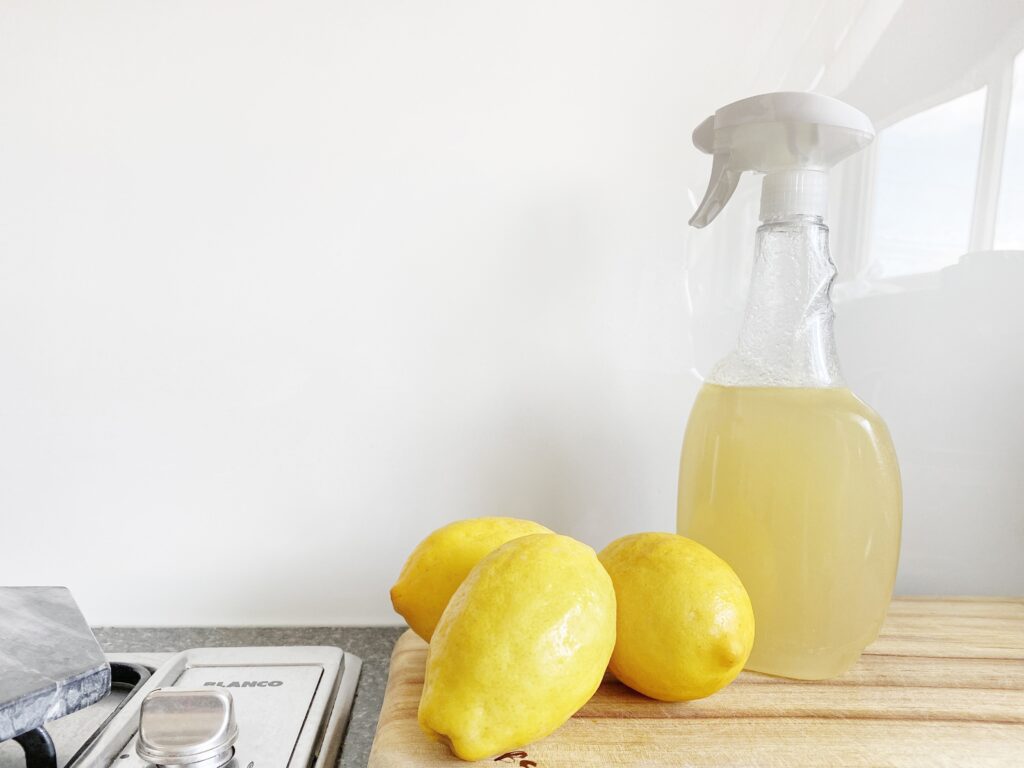Have you ever wondered if heavy rain does the job of cleaning your solar panels? Well, you’re not alone. Many solar panel owners often ponder over this question. After all, solar panels are constantly exposed to the elements, and it only makes sense to think that rain would help keep them clean. In this article, we will explore whether heavy rain does indeed clean solar panels effectively. So, sit back, relax, and let’s delve into the world of rain and solar panels!

Understanding the Surface of Solar Panels
Solar panels are devices that convert sunlight into electricity. They are typically made up of multiple layers of materials designed to optimize the absorption and conversion of solar energy. The surface of solar panels plays a crucial role in their overall efficiency and effectiveness.
Structure and material of solar panels
Solar panels are composed of several key elements. The top layer, known as the photovoltaic (PV) layer, consists of a semiconductor material, often silicon, which has the unique property of being able to convert light into electricity. Beneath the PV layer, there is a protective glass cover that shields the delicate components of the solar panel from external elements. The back layer of the panel is typically made of a polymer or metal material for support and protection.
The role of surface texture in self-cleaning
the surface texture of solar panels plays a vital role in their ability to self-clean. Some solar panels are designed with a smooth surface, while others have a textured or rough surface. The purpose of the textured surface is to enhance self-cleaning capabilities by promoting the shedding of dirt and debris.
The Impact of Environmental Factors
Solar panels are constantly exposed to various environmental factors that can affect their performance and cleanliness. Understanding how these factors impact solar panels is essential for ensuring their optimal operation.
Effect of dust and pollution on solar panels
dust and pollution can accumulate on the surface of solar panels over time, reducing their efficiency. Dust particles settle on the surface, blocking sunlight from reaching the PV layer and inhibiting the conversion of solar energy into electricity. Similarly, pollutants in the air can create a layer of grime on the panels, further diminishing their effectiveness.
Impact of bird droppings
Bird droppings are a common concern for solar panels, as they can create significant obstructions to the absorption of sunlight. The acidic nature of bird droppings not only hinders the flow of light but can also cause damage to the protective layers of the panels if not cleaned promptly.
Role of weather patterns in solar panel cleaning
Weather patterns also play a role in the cleanliness of solar panels. Factors such as wind and rain can contribute to the removal of dirt and debris from the panel’s surface. However, the efficiency of weather patterns in cleaning solar panels can vary depending on various circumstances.
The Effect of Rain on Solar Panels
Rainfall is often considered a natural cleaning mechanism for solar panels due to its ability to wash away dirt and debris. However, the impact of rain on solar panels is influenced by different factors.
Interaction of rain with solar panels
When rainwater comes into contact with the surface of solar panels, it helps dislodge dirt particles and wash them away. The water acts as a gentle yet effective cleanser, rinsing away the accumulated dust and grime.
Difference in impact of light and heavy rain
The impact of rain on solar panels can vary depending on its intensity. Light rain may not be as effective in cleaning the panels, as it may not provide enough force to dislodge stubborn dirt particles. On the other hand, heavy rain can be more efficient in removing dirt and debris due to its greater power and force.
Does rain damage solar panels?
Rain itself does not pose a significant risk of damage to solar panels. Solar panels are designed to withstand various weather conditions, including rain. However, in areas with unique weather patterns, such as hail or acid rain, precautions may need to be taken to protect the panels from potential harm.
Is Rain Effective in Cleaning Solar Panels?
Rain can be an effective means of cleaning solar panels, but its efficiency depends on several factors.
Efficiency rate of natural cleaning
The efficiency of rain in cleaning solar panels can vary. While rainwater can effectively remove loose dirt and debris, it may not be as effective in cleaning persistent stains or hardened substances.
Role of rain’s intensity in the cleaning process
The intensity of rain plays a significant role in how thoroughly it cleans solar panels. Light rain may not provide enough force to remove stuck-on dirt or grime, while heavy rain can dislodge and wash away stubborn contaminants.
Influence of prevalent contaminants in the effectiveness of rain cleaning
The effectiveness of rain in cleaning solar panels is also influenced by the types of contaminants present on the surface. For example, rain may be less effective in removing bird droppings or tree sap, which can require additional cleaning methods.

The Role of Rain in Removing Different Types of Dirt
Rainwater has varying degrees of effectiveness in removing different types of dirt from solar panels.
Effectiveness of rain in cleaning dust and dirt
Rainwater is generally effective in washing away loose dust and dirt particles that may accumulate on the surface of solar panels. The water helps dislodge the particles and carries them away, leaving the panels cleaner and more efficient.
Can rain remove bird droppings?
Rain alone may not be sufficient to completely remove bird droppings from solar panels. The acidity of bird droppings can cause them to adhere to the panel’s surface more stubbornly, requiring additional cleaning measures for thorough removal.
The impact of rain on hardened dirt or substances
Rain may have limited effectiveness when it comes to removing hardened dirt or substances from solar panels. If the dirt or substance has been baked onto the surface or has hardened over time, rain alone may not be able to dislodge and clean it effectively.
Limitations of Rain Cleaning
While rain can be beneficial, it may not provide a comprehensive cleaning solution for solar panels due to certain limitations.
Why rain might not clean panels effectively
Rain may not clean solar panels effectively for several reasons. If the rainwater is not able to reach all areas of the panel’s surface, such as corners or crevices, some dirt may remain. Additionally, if the rain is followed by a period of dry weather, any residual moisture may cause dirt particles to stick to the panels, resulting in reduced efficiency.
Impact of angle and position of panels
The angle and position of solar panels can also impact the effectiveness of rain cleaning. Panels that are positioned horizontally or at a steep angle may allow rainwater to flow more easily, promoting self-cleaning. However, panels that are installed at a shallow angle may not benefit as much from rain cleaning.
Effects of local climate on rain cleaning
The local climate also plays a role in the effectiveness of rain cleaning. Areas with frequent rain or high humidity levels may experience more efficient self-cleaning of solar panels compared to regions with infrequent precipitation. Additionally, regions prone to heavy pollution or certain environmental factors may require more frequent and thorough cleaning to maintain optimal performance.

Importance of Regular Cleaning for Solar Panels
Regular cleaning is essential for maintaining the efficiency and longevity of solar panels.
Impact of clean panels on energy efficiency
Clean solar panels are essential for maximizing energy efficiency. Dust, dirt, and other contaminants on the surface of panels can block sunlight and reduce the amount of energy they can generate. Regular cleaning helps ensure that the panels are free from obstructions, allowing them to harness the maximum amount of solar energy.
Role of regular cleaning on panel lifespan
Regular cleaning can also prolong the lifespan of solar panels. By removing dirt, debris, and pollutants from the surface, the panels are protected from potential damage or degradation. Proper maintenance can extend the lifespan of solar panels and reduce the need for costly repairs or replacements.
Recommended cleaning procedures and frequency
To maintain optimal performance, solar panels should be cleaned regularly using appropriate cleaning procedures. It is recommended to use a soft brush or sponge with mild detergent and water to gently clean the panels. Harsh chemicals or abrasive materials should be avoided to prevent damage to the surface. The frequency of cleaning may vary depending on environmental factors, but a general guideline is to clean the panels every six months or as needed.
Professional Cleaning Services for Solar Panels
For those who prefer to leave the cleaning of solar panels to the professionals, there are various benefits to hiring reputable cleaning services.
Benefits of professional cleaning services
Professional cleaning services have the knowledge, experience, and equipment necessary to clean solar panels efficiently and safely. They can ensure that the panels are thoroughly cleaned without causing any damage. Professional cleaners also possess the expertise to identify any potential issues or areas that may require attention, ensuring the optimal performance of the panels.
Cost and considerations
The cost of professional cleaning services for solar panels can vary depending on several factors, such as the size of the system and the complexity of the cleaning task. It is advisable to obtain multiple quotes from reputable cleaning companies and compare their services and pricing before making a decision.
Examples of reputable cleaning services
There are numerous reputable cleaning services that specialize in solar panel maintenance. Some examples include Solar Panel Cleaning Pros, Solar Maid, and Clean Solar Solutions. These companies have established a reputation for providing reliable and efficient cleaning services for solar panels.
Do-It-Yourself (DIY) Solar Panel Cleaning
For individuals who prefer a hands-on approach, cleaning solar panels can be done as a do-it-yourself (DIY) project.
Considerations for DIY cleaning
Before attempting DIY cleaning, it is important to consider safety precautions. Ensure that the panels are not hot or directly exposed to sunlight while cleaning to avoid burns or damage. It is also essential to follow the cleaning recommendations provided by the panel manufacturer to prevent any potential damage.
Tools required for cleaning
To clean solar panels effectively, certain tools are necessary. Soft brushes or sponges, a bucket of water, mild detergent, and a squeegee or cloth for drying are some basic tools that can be utilized for DIY cleaning.
Tips and tricks for effective cleaning
When cleaning solar panels, it is important to avoid using abrasive materials or harsh chemicals that may damage the surface. Gently scrubbing the panels with a soft brush or sponge, using mild detergent and water, will effectively remove dirt and grime. Thoroughly rinse the panels with clean water and dry them with a squeegee or clean cloth to prevent water spots.
Cleaning and Maintenance Suggestions
Developing a cleaning schedule and following specific maintenance suggestions can help ensure the optimal performance and longevity of solar panels.
Importance of a cleaning schedule
Establishing a regular cleaning schedule is essential for maintaining the cleanliness and functionality of solar panels. By incorporating cleaning into a routine, it becomes easier to keep the panels in optimal condition and prevent the buildup of dirt and debris.
Ideal times of the year for cleaning
Choosing the right time of the year to clean solar panels can enhance the effectiveness of the cleaning process. Cleaning during periods of moderate weather, such as spring or autumn, can provide optimal conditions for achieving the best results. Avoid cleaning during extreme weather conditions or when the panels are excessively hot, as this can compromise their integrity.
Precautions while cleaning
When cleaning solar panels, it is important to take certain precautions to prevent accidents or damage. Avoid standing on the panels or applying excessive pressure that could cause cracks or breakages. Use appropriate safety equipment, such as gloves or protective eyewear, when handling cleaning materials. Prioritize personal safety and follow the manufacturer’s instructions for cleaning to ensure a successful and risk-free cleaning process.
In conclusion, understanding the surface of solar panels and how environmental factors, rain, and various types of dirt impact their cleanliness is crucial for maintaining their efficiency and lifespan. Regular cleaning using the appropriate methods and frequency, whether through professional services or DIY cleaning, is essential for optimal energy generation and protection against potential damage. By incorporating a cleaning schedule and following recommended maintenance suggestions, solar panel owners can ensure the consistent performance and longevity of their investment in renewable energy.




